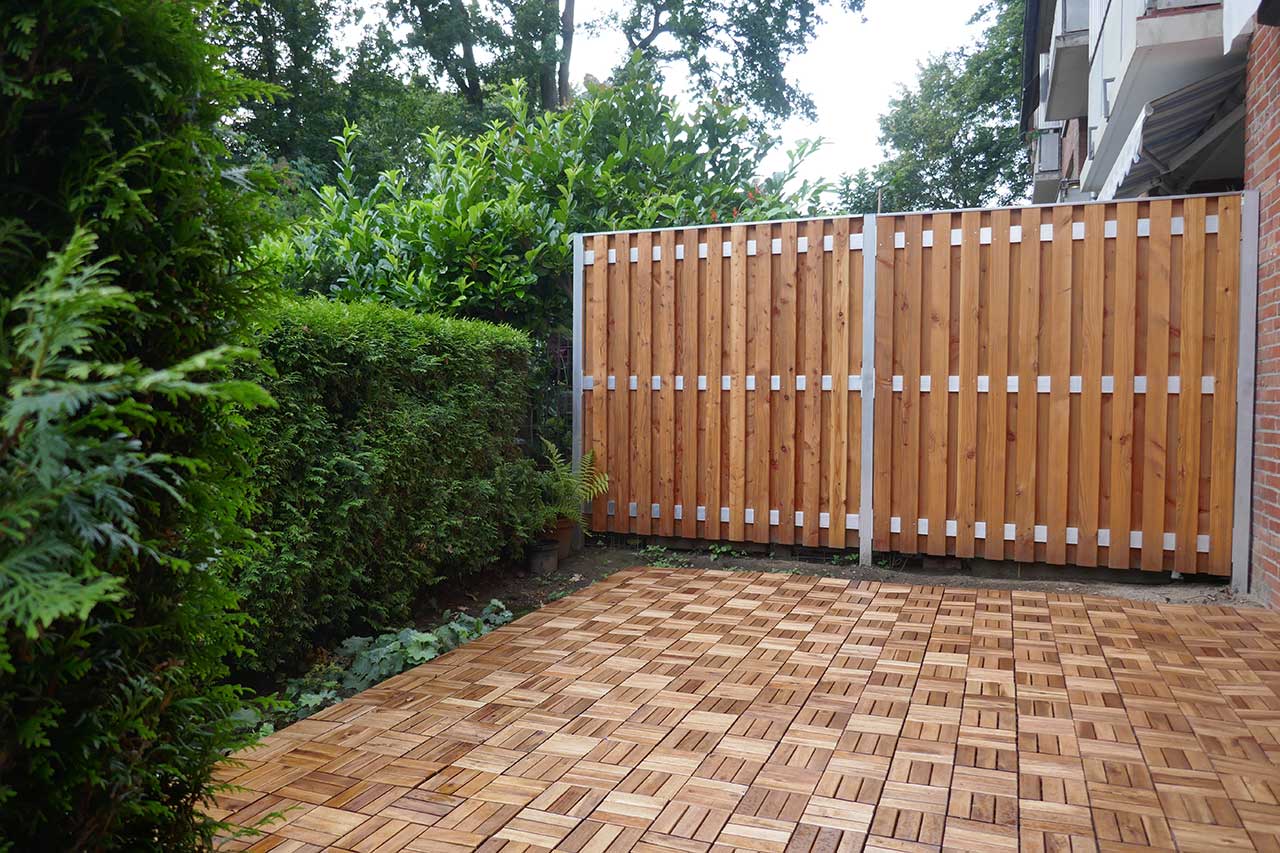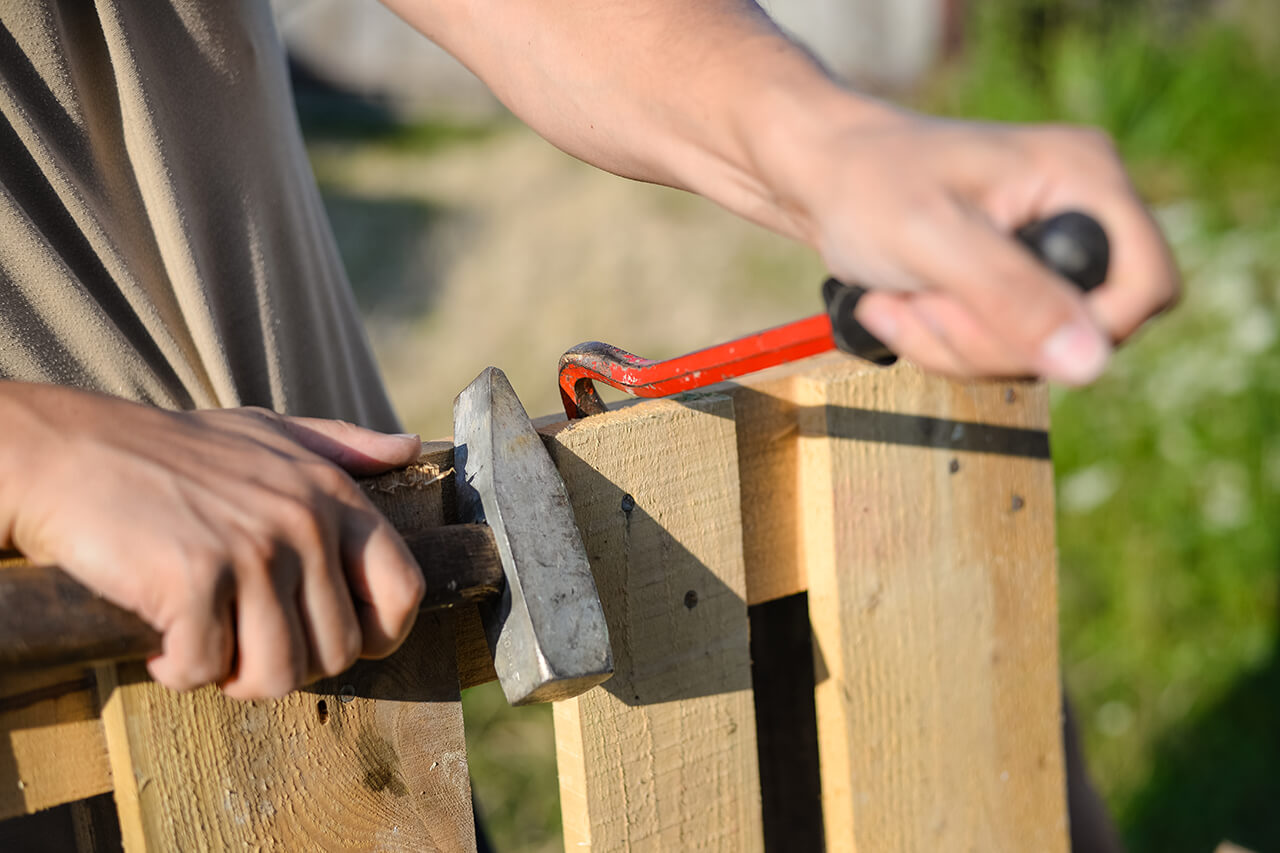How Much Does a Board-on-Board Fence Cost in 2025?
A board-on-board fence costs an average of $6,750


The average cost to build a board-on-board fence is $6,750, with most homeowners paying between $1,550 and $15,600.
Key cost factors include height, site prep, yard size, material choice, and local labor rates.
Board-on-board fences offer enhanced privacy due to overlapping pickets, leaving no gaps.
Additional costs may include the removal of old fencing and hiring a land surveyor.
Hiring a professional ensures proper installation and compliance with local regulations.
This article was updated using automation technology and thoroughly reviewed for accuracy by HomeAdvisor Editor Ryan Noonan.
The average homeowner spends $6,750 to build a board-on-board fence, with most paying between $1,550 and $15,600. Factors like location, yard size, and material choice significantly influence the overall cost. Board-on-board fences, costing between $15.50 and $52 per linear foot, offer superior privacy thanks to their overlapping picket design. Hiring a professional fencing contractor ensures your fence is installed correctly and meets local regulations.
Board-on-Board Fence Cost Factors
While the ideal fencing installation site is a flat surface, this isn’t always the case. If you have a preexisting fence in place, you’ll need to consider the extra cost of removal. Understanding the key cost factors that impact your total board-on-board fence cost will help you plan your budget.
Yard Length
Standard residential yards are around 200 linear feet on average, which is roughly one-fourth of an acre. But this applies to flat yards only. You may need more fencing if your property is sloped or has property lines that aren’t exactly like a square, for instance, those that live on a cul-de-sac.
| Plot Size (Acres) | Fence Length (Linear Feet) | Average Cost Range |
|---|---|---|
| 1/6 | 100 | $1,550–$5,200 |
| 1/5 | 150 | $2,325–$7,800 |
| 1/4 | 200 | $3,100–$10,400 |
Fence Height
Board-on-board fences typically come in 6-foot and 8-foot heights. Opting for an 8-foot fence generally increases the cost by about 30% compared to a 6-foot fence. Keep in mind that local regulations or HOA rules may limit the height of your fence, so it's important to check with your local municipality before finalizing your plans.
Wood Type
Board-on-board fences require about 30% more materials than standard fences because the overlapping design eliminates gaps, maximizing privacy. You'll need extra pickets to complete the job due to this construction method. Here are the various material options for your board-on-board fence and their associated costs.
| Material | Cost per 6-Foot Plank |
|---|---|
| Composite | $8–$13 |
| Pine | $2.50–$10.50 |
| Cedar | $2.50–$10.50 |
| Red cedar | $2.50–$10.50 |
| Redwood | $10.50–$26 |
| Spruce | $6.50–$13 |
| Oak | $6.50–$19.50 |
| Tropical hardwoods | $13–$32.50 |
Labor
On average, labor costs for installing a board-on-board fence range from $13 to $19.50 per linear foot. When you combine this with material costs, you can expect the total installation cost to be between $15.50 and $52 per linear foot.
It's wise to obtain multiple quotes before making a final decision. Contact several fencing installation companies to find the best price that fits your budget.
Removal of Old Fence
The average cost to remove an old fence is between $300 and $750, depending on the size of the project and local conditions.
Land Surveyor
If you don't have a preexisting fence, consider hiring a land surveyor to verify your property lines and ensure you don't inadvertently build on someone else's land, which can lead to fines and legal issues.
The average cost to hire a land surveyor is $380 to $770, and it varies depending on location, property size, and history.
DIY vs. Hiring a Professional Fence Installer
Building a fence yourself requires obtaining the proper permits and understanding local building codes. Constructing a board-on-board fence can take around 50 to 60 hours if you're working alone, partly due to the additional pickets needed for the overlapping design.
You'll need tools such as a shovel, posthole digger, drill, hammer, circular saw, and nails. If you need to purchase these, expect to spend $400 to $500. Materials cost between $2.50 and $32.50 per linear foot on average.
While DIY installation may seem cost-effective if you already own the necessary tools and have construction experience, consider the significant time investment required.
Professional fencing installation contractors charge an average of between $13 and $19.50 per linear foot for installation labor. They handle all aspects of the installation, including obtaining permits, ensuring compliance with local building codes, and managing any unexpected challenges. Costs may vary based on regional labor rates, with urban areas generally seeing higher labor costs than rural locations.
Fencing professionals can efficiently remove old fences, accurately measure and mark property lines, dig post holes, set posts in concrete, install fence panels, and finish with gates and hardware, ensuring a high-quality result.
How HomeAdvisor Gets Its Cost Data
No place is more important than your home, which is why HomeAdvisor connects homeowners with local pros to transform their houses into homes they love. To help homeowners prepare for their next project, HomeAdvisor provides readers with accurate cost data and follows strict editorial guidelines. After a project is complete, we survey real customers about the costs to develop the pricing data you see, so you can make the best decisions for you and your home. We pair this data with research from reputable sources, including the U.S. Bureau of Labor Statistics, academic journals, market studies, and interviews with industry experts—all to ensure our prices reflect real-world projects.
Frequently Asked Questions
Board-on-board fencing uses overlapping vertical boards that eliminate gaps, creating a continuous barrier for complete privacy and a uniform appearance. This design requires more materials and labor but ensures a secure, no-gap construction that enhances security and curb appeal. Other fence designs, like picket fences, have gaps between each board, reducing the amount of privacy they provide.
Yes, board-on-board fencing is a true privacy fence. Its overlapping construction leaves no visible gaps, preventing onlookers from seeing into your property and enhancing both security and seclusion. It's an excellent choice if you require absolute visual privacy and a timeless aesthetic that will continue to look good for years to come.




- Aluminum or Steel Fence - Repair
- Barbed Wire Fence - Install
- Vinyl or PVC Fence - Install
- Aluminum or Steel Fence - Install
- Electronic Pet Fence - Install
- Wrought Iron Fence - Install
- Vinyl or PVC Fence - Repair
- Wrought Iron Fence - Repair or Weld
- Gate for Driveway or Security - Install or Replace
- Chain Link Fence - Install
- Chain Link Fence - Repair or Alter



